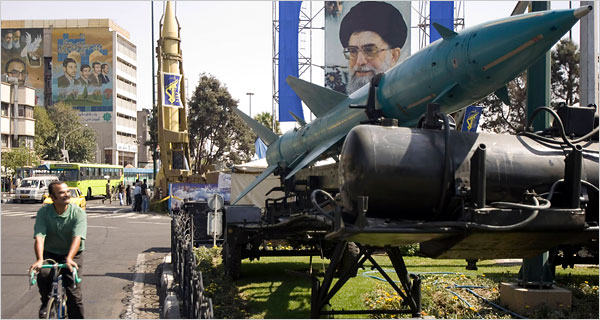UPDATES
AIJAC UPDATE – US foreign policy on Iran and the Muslim Brotherhood
July 14, 2011

AIJAC’S latest email Update looks at US foreign policy positions in the Middle East that many analysts describe as alarmingly passive and which will effectively deliver the region into the anti-Western clutches of Iran and the Muslim Brotherhood in Egypt.
Last Friday’s comments by Admiral Mike Mullen, Chairman of the Joint Chiefs of Staff, that Iran is arming extremist Shi’ite groups and is therefore in a “shooting war” with the United States has perturbed many analysts who question the Obama Administration’s apparent lack of desire in confronting Teheran’s belligerence. As the leader of the “resistance bloc”, Iran has not been unaffected by the Arab Spring. In Syria, its main ally, the ruling Assad family, is still battling ongoing street demonstrations. The UN Security Council passed a resolution on Tuesday condemning the violent protests against the French and US embassies in Damascus. Concurrent with the UN vote, US Secretary of State Hillary Clinton expressed her strongest language to date against the Assad regime but stopped short of calling for regime change. The Israeli intelligence community strongly believes Iran and Syria were behind the recent “Nakba Day” and “Naksa Day” attempts to infiltrate Israel’s northern border. Israel’s head of IDF Military Intelligence Maj.- Gen. Aviv Kochavi warned this week that Iran was meddling in Syria, Lebanon, Egypt, Bahrain, Sudan, Yemen, Iraq and Gaza. Meanwhile, in Egypt, despite the clear evidence of the Muslim Brotherhood’s anti-American and antisemitic stances, Hillary Clinton has proposed opening a dialogue calling the organisation “peaceful and committed to nonviolence”.
First up, Middle East pundit Barry Rubin decodes the import of Admiral Mullen’s comments and lists the policies America must adopt to fight back against Iran’s hegemonic ambitions. He argues that there are some low cost options available that rely on “realpolitik, deterrence, power politics, supporting your friends, and punishing your enemies”. To read this important article, CLICK HERE.
Next, two linked pieces from Elliot Abrams, Senior Fellow for Middle East Studies at the Council on Foreign Relations, who writes that the Obama Administration’s timidity means Iran knows its nuclear weapons program faces no real opposition. To read these hard hitting critiques of America’s current foreign policy, CLICK HERE and HERE.
Finally, Melanie Phillips looks at the true face of the Muslim Brotherhood and wonders how Hillary Clinton can seek to open a dialogue with an outfit that openly supports murdering Jews and Americans. Phillips also faults the British Foreign Office for aping America’s foreign policy stances. To read this article appraising the Muslim Brotherhood’s long history of anti-Jewish and anti-Western behaviour, CLICK HERE.
Readers may also be interested in:
- Two articles looking at whether Hillary Clinton’s latest comments on the Assad regime actually called for regime change. The first by Barry Rubin and the other by Washington Institute for Near East Policy analyst Andrew Tabler.
- Michael Eisenstadt and Jeffrey White of the Washington Institute explain how, similarly to Egypt, Syria’s army holds the key to the country’s future.
- Reuel Marc Gerecht urges the Obama Administration to act with urgency against the Assad regime, warning it is “shaping up to be the greatest missed opportunity of Barack Obama’s presidency”.
- Historian Doron S. Ben-Atar suggests time is not on the Palestinians’ side, as they seem to believe, and it is in their best interests to return to negotiations.
- The Jerusalem Post editorialises that the increasing bluster from Hezbollah leader Hassan Nasrallah is a sign of the desperation he is feeling about the uncertain future of his patron Syrian President Bashar Assad.
- The US calls for the resignation of UN Rapporteur on Palestinian Rights, Richard Falk, after he posted an antisemitic cartoon on his blog.
- Khaled Abu Toameh asks where the missing Arab funding for the Palestinians has gone, and wonders whether they are indeed ready for a state when they rely on foreign donations to pay their public servants’ wages.
- Isi Leibler argues that the Obama Administration’s reassurances to Israel cannot be trusted given its abrogation of promises made by past US Presidents.
- For those who missed it, Gerard Henderson analyses the disinterest by some sections of the Australian media in a violent demonstration against a Max Brenner chocolate shop in Melbourne recently.
Tags: Anti-Zionism





